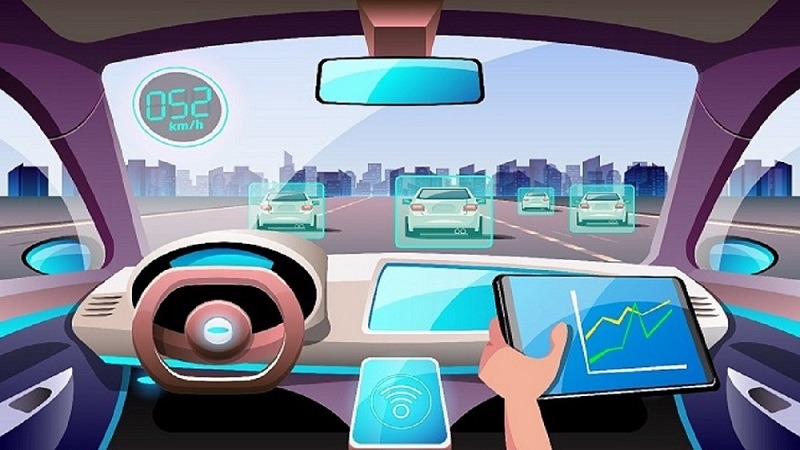AI automation in software testing involves applying intelligent algorithms and machine learning techniques, making the process more efficient. Software testing is an essential procedure utilized to validate the dependability and excellence of software applications. It consists essentially of a methodical examination of every software system or component to identify any flaws that could compromise functionality, performance, or user experience.
Historically, software testing was a laborious and time-consuming undertaking that relied on human testers to implement test cases and verify their accuracy by comparing their execution to system responses. Nevertheless, the progression of AI technology has resulted in a transition from manual to automated software testing services.
The Need for AI Automation in Software Testing
The ever-increasing complexity and scope of software applications means that manual testing is inefficient and prone to errors. With software development cycles getting ever shorter, faster and more reliable testing practices are required. In automation, the software testing can bring advantages of greater efficiency, wider scope, and elimination of human error.
Testers who automate repetitive jobs can devote more time to intricate situations and guarantee that they did indeed test what was critical. Software testing has gone from being pure manual work to an increasingly automated, intelligent approach over several years. At first only their experience and expertise enabled testers to spot defects.
However, as applications become increasingly complex, the need for more systematic and repeatable testing methodologies developed. As a result, test management frameworks and specialized tools emerged which allowed for writing up the scripts.

Image: Suneratech
Software testing has been transformed by Artificial Intelligence (AI). Armed with powerful AI-powered tools, software testers can quickly crunch the big data they receive and look for patterns. They are then able to make good decisions based on their findings.
Benefits of AI Automation in Software Testing
There are many benefits of using AI automation in software testing. It speeds up the testing process enormously, helping to make high-quality software available rapidly. At scale and efficiency, it is clear that AI algorithms can execute test cases more quickly than human testers. Further, AI automation increases test coverage because more tests can be run in a shorter period. This means that key functions are thoroughly tested, so there is no fear of unnoticed defects.
Test Automation Centers of Excellence in BizOps Automation
Automation of business operations, sometimes known as “BizOps,” is an unavoidable part of the future of every contemporary organization.
Moreover, AI automation also frees testers from the reliance on human resources to concentrate their efforts on more complex and creative parts of testing. It also avoids human errors that can arise during manual testing. This allows software testing to be more accurate, reliable, and consistent. Automated test scripts can gradually improve through learning from previous tests and adaptation to new conditions.
Features and AI Tools Automation in Software Testing
A variety of AI-based automation tools have hit the marketplace, providing a myriad of features to help in software testing. These tools utilize the application of AI algorithms and techniques to improve test case creation, execution, and analysis. Some of the key features offered by AI automation tools include:
-
Test Case Generation:
Employing AI can generate test cases from system specifications, requirements, or user behavior patterns without human assistance. This avoids the need for hand-made test cases and assures full coverage.
-
Test Execution and Analysis:
AI algorithms execute test cases and analyze system behavior to find potential defects. Because they can spot patterns and irregularities that human testers might overlook, these programs find critical problems early.
-
Defect Prediction:
By analyzing historical data and identifying trends that result in defects, AI automation tools can predict potential failures. This lets testers concentrate their efforts on areas that are more likely to have problems.
-
Test Maintenance:
A substantial portion of the effort required to maintain a test suite can be relieved by autonomously updating test scripts in response to system changes. As a result, the tests maintain their relevance and currency in tandem with the software’s development.
Future Trends in AI Automation in Software Testing
The future of AI in robotics automation software services seems promising. Several trends will shape the industry. One example is integrating AI with other new technologies, such as robotic process automation (RPA) and the Internet of Things(IoT). Therefore, this convergence will provide end-to-end automated testing from test case generation through deployment and monitoring.

A second trend is the use of cloud-based RPA for business: AI-enabled intelligent agents to automate testing tasks. These agents are capable of continuously monitoring software systems, detecting anomalies, and executing test cases autonomously. This way we maintain 24-hour testing and receive speedy feedback so that the whole software has a higher quality.
Best Practices for Implementing AI Automation in Software Testing
To successfully implement AI automation in software testing, organizations should consider the following best practices:
-
Define Clear Objectives:
Define the goals and expectations of AI automation in software testing with clarity. Highlight areas where AI can add the most value and act on this.
-
Invest in Training and Expertise:
Train testers and developers in AI concepts and techniques; allocate resources. Internal expertise guarantees a smooth transition to automation and the largest benefits.
-
Collaborate with AI Experts:
Work with AI experts to design and develop for the organization’s own needs. Their technical expertise can overcome these challenges and enhance performance.
-
Combine AI with Human Expertise:
Combine the advantages of AI automation and human testers. Human testers bring critical knowledge of the domain and provide validation, while AI algorithms tackle repetitive tasks that are data intensive.
Challenges and Limitations of AI Automation in Software Testing
Integrating AI automation in software testing brings many benefits, but also comes with its challenges and limitations. The black-box nature of AI algorithms is one of the primary concerns. As a result, because testers might not be able to understand how and on what basis AI arrives at certain decisions or predictions, it is hard for them to completely trust the results either. In safety-critical domains..
The training of AI models and their fine-tuning for individual software systems is another obstacle. However, this process requires a great deal of experience and capital that companies may not have on hand. Moreover, AI automation tools are often not equipped to test non-functional requirements (like usability or accessibility), that require human judgment and subjective assessment.
Conclusion
Businesses can deliver high-quality software more rapidly and effectively than ever before with enterprise AI solutions. By leveraging machine learning and intelligent algorithms, testers can surpass the limitations associated with manual testing. Tests become more comprehensive, accurate, and reliable for this reason.
Although challenges and limits exist, human ingenuity can overcome them by integrating AI automation with the fullest use of people’s capacities. As the industry changes with time, the future of AI automation in software testing appears to be bright.



